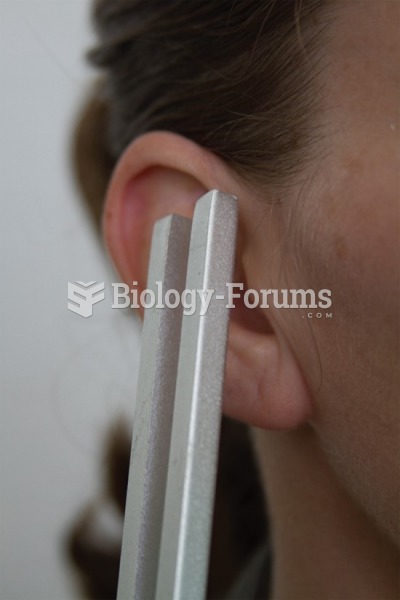Answer to Question 1
Correct Answer: 1,2,3,4
Rationale 1: Allergy testing can help pinpoint particular allergens responsible for symptoms and direct a treatment plan that includes avoiding those allergens.
Rationale 2: Allergy testing can help pinpoint a particular allergen responsible for symptoms and direct a treatment plan that includes avoiding that allergen.
Rationale 3: Allergy testing can help pinpoint particular allergens, such as animal dander, responsible for a client's symptoms and direct a treatment plan that includes avoiding those allergens.
Rationale 4: Allergy testing can help pinpoint particular allergens, such as mold, responsible for a client's symptoms and direct a treatment plan that includes avoiding those allergens.
Rationale 5: Allergy testing is not usually performed to discover allergies to medications.
Global Rationale: Allergy testing can help pinpoint the particular allergens responsible for the symptoms and help direct a treatment plan that includes avoiding allergens that cause the symptoms and treating the symptoms.
Allergy testing is not usually performed to discover allergies to medications.
Answer to Question 2
Correct Answer: 1
Rationale 1: The cilia project from the epithelium of the nasal passages and sweep pathogens and particulate matter upward toward the oropharynx, where it is swallowed.
Rationale 2: The mucous membranes secrete mucus that traps foreign particles, but they do not sweep them out.
Rationale 3: The nasal vestibule is the most anterior part of the nasal cavity.
Rationale 4: The internal nares are the cavity located behind the nasal cavity.
Global Rationale: The mucous membranes of the URT are lined with ciliated epithelium. The cilia projecting from the epithelium are found throughout the nasal passages and help to trap smaller particles. The cilia have a wavelike motion that sweeps the pathogens and particulate matter upward toward the oropharynx, where they are swallowed when a person coughs or clears the throat. A sneeze clears the nasal passages. The mucous membranes secrete mucus that traps foreign particles, but they do not sweep them out. The nasal vestibule is the most anterior part of the nasal cavity. The internal nares are the cavity located behind the nasal cavity.







